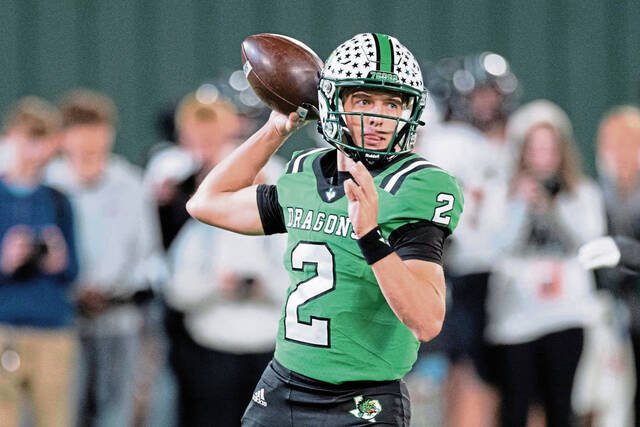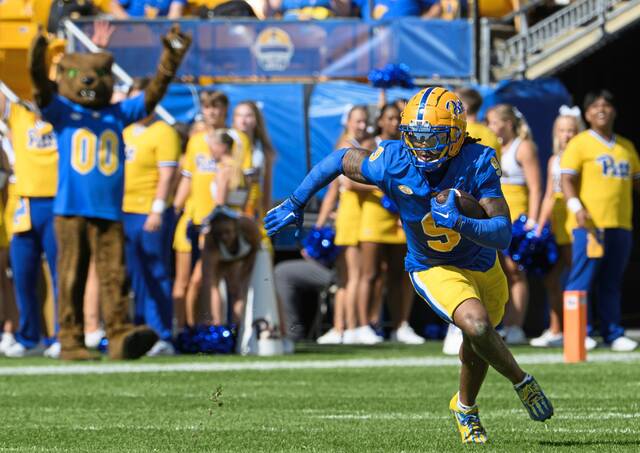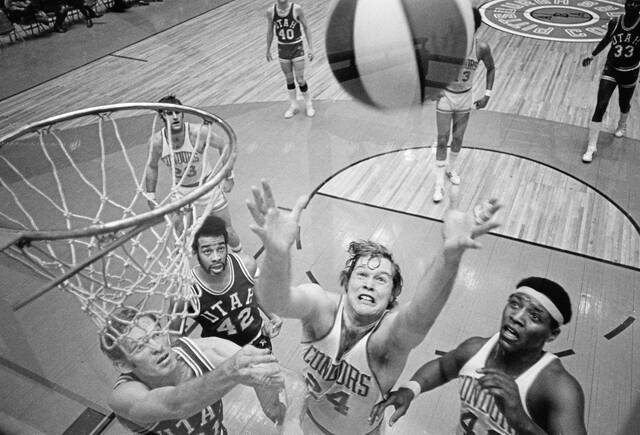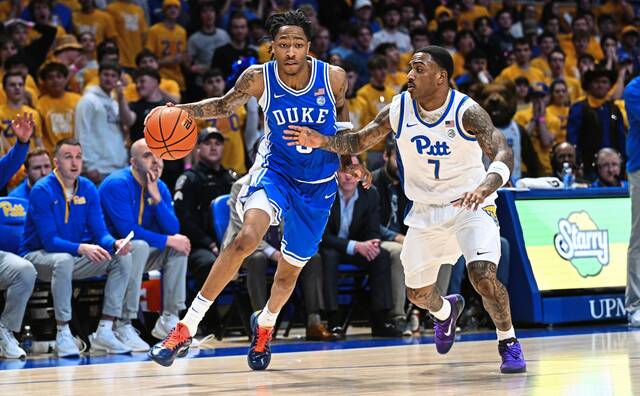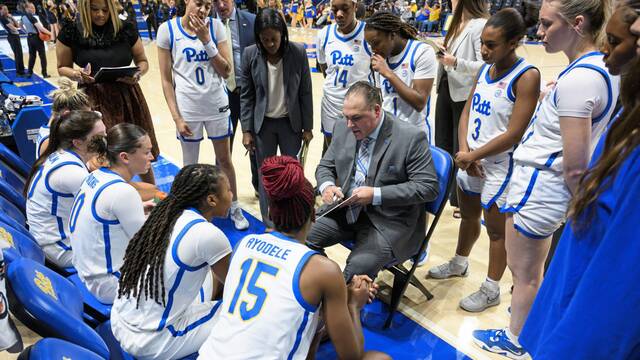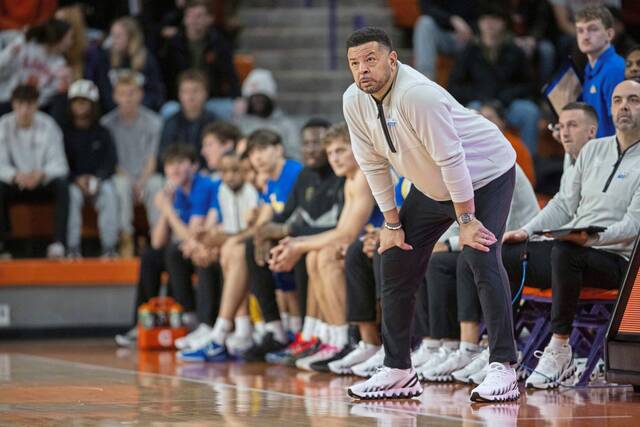Kim Tipton loved nothing more than watching her son, Tre, play football.
She went to all the games, but Kim lived in Vandergrift. Meanwhile, Tre was at Pitt for the past six years, earning a bachelor’s degree in communications, working on a master’s in social work, playing wide receiver going on seven seasons and, of course, helping anyone who needed a shoulder to lean on or an ear that would listen.
Yeah, he’s a busy guy.
Sadly, Kim died in June, only reinforcing Tre’s lifetime goal of making Mom proud.
“Before she couldn’t see everything I was doing,” Tipton said Tuesday after practice. “Now, she sees everything. I have to make sure I’m doing the right things.
“For sure, 100,000%,” he said of playing this season for Kim. “Every day I go out (to practice), it’s me playing for my mom. And that transition process of realizing that you’re now a man and you have to rely on yourself and rely on the goals that you’re creating, I can’t let her down.
“I know she’s watching me every chance that she gets. Every move that I make, everything that I do, how I move, how I do anything, I can’t make mom mad.”
Tipton is a good football player, possibly the best athlete ever to graduate from Apollo-Ridge. Injuries have limited him to 35 catches and two touchdowns in six seasons at Pitt, but he is not defined by the game he loves.
He has decided to make his mission advocating for students’ and athletes’ mental health. He founded LOVE (Living Out Victoriously Everyday), an on-campus organization in which he counsels student-athletes and helps them deal with the pressures of mixing academics with athletics.
“Athletes don’t really get an opportunity to speak up about (mental health). We really don’t get the opportunity to speak up about our situations,” he said. “And if we do, we get looked at differently. Everybody claims that we’re superheroes. We’re just normal people, just like you.
“So to give athletes that opportunity to speak up and say, ‘I’m not OK,’ I want to be the person who does that. If I could be, I’d be the Michael Jordan of mental health. A lot of the guys know that they can come to me and talk to me about anything at any given moment. It’s completely confidential. If I can just do that, I’m more than thankful.”
Tipton understands the perceived contradiction of an athlete in what he calls “a gladiator sport” talking about mental health.
“We’re expected to go out there and kill the next man across from us,” he said. “To think that somebody’s talking about mental health in a gladiator sport, it throws some people off. But I’m OK with that.”
Tipton realized helping others was his calling when he dealt with depression early in his Pitt career.
“My freshman year when I went through such a tragic and serious situation, I realized holding everything in wasn’t helping me any,” he said.
Tipton committed to former coach Paul Chryst in the summer of 2014, but he played his entire career for Pat Narduzzi, who is impressed by his wide receiver’s determination.
“The success he has had off the field you can’t measure. The measuring stick is not big enough to measure what that guy has overcome,” Narduzzi said. “It’s amazing what he’s gone through, the things he survived when a lot of kids would have hung up their cleats and said, ‘I’m done.’ ”
Tipton said talking about his experiences helps. To that end, he believes in what he calls the “Glass Cup Theory.”
“If you take a glass cup and fill it up with water over and over again, what begins to happen? It overflows, right? Think about it with yourself. When you’re constantly taking in all these negative things and you’re not talking about it, you begin overflowing and doing things even you don’t understand.
“The scary part with that glass cup if you begin to overflow it and it tips over and breaks, then what? Anybody knows when glass breaks, it’s hard to put it back together. There are shards and bits and pieces all over the place. In order for me to keep my cup half-empty, but also half-full, I have to share my experiences.
“My mom, before she passed away, she said my biggest gift is my ability to speak and to care for other people. I’m taking full advantage of that.”
Meanwhile, football remains a big part of his life. He still wants to play, even while he’s eager to help others in what may become his life’s work.
“Football is the one sport that once you put it down, it’s over,” he said. “As long as I’m able and these legs keep running, the game has been my best friend, so I’m going to continue to play.”
But at some point, he said, “I’m going to be a superhero. I’m going to change lives. I’m going to make a difference.”



